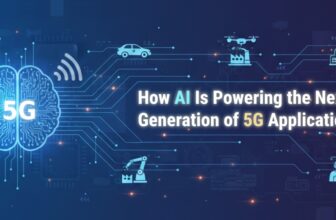
The digital marketing landscape is undergoing a revolution, driven by two groundbreaking concepts — “Metaverse” and “Web3.” These innovations promise to reshape how brands engage with customers, creating new opportunities for eCommerce services, digital marketing offers, and social media marketing. But how will they truly impact marketing services?Let’s analyze this piece by piece
What Are the Metaverse and Web3?
Imagine stepping into a fully immersive virtual world where you can shop, socialize, or even attend a business meeting without leaving your home — that’s the Metaverse. Meanwhile, Web3 represents the evolution of the internet, emphasizing decentralization and user ownership. These technologies are already creating ripples across industries, and marketers can’t afford to ignore them.
Why These Innovations Matter for Marketers
The Metaverse offers marketers a unique chance to build hyper-interactive environments, while Web3’s decentralized nature fosters trust and transparency. Together, they redefine how brands interact with their audiences, making the future of digital marketing more exciting than ever.
The Evolution of Digital Marketing
From Traditional to Digital Marketing
Marketing has come a long way. Gone are the days of relying solely on print ads or TV commercials. The internet brought forth digital marketing, with tools like pay-per-click ads, email campaigns, and search engine optimization (SEO) becoming indispensable. However, as technology continues to evolve, so must marketing strategies.
Entering the Age of the Metaverse and Web3
The rise of the Metaverse and Web3 takes marketing into uncharted territory. Businesses must now explore how to create meaningful experiences in virtual spaces while leveraging the transparency and trust enabled by decentralized systems.
Understanding the Metaverse
What Exactly Is the Metaverse?
The Metaverse is a shared virtual space, blending augmented reality (AR), virtual reality (VR), and other immersive technologies. Think of it as a 3D version of the internet, where users can interact with brands, products, and each other in real-time.
Key Features of the Metaverse
Immersive 3D Environments: Engaging and lifelike experiences for users.
Avatars: Personalized digital identities that represent users in virtual spaces.
Real-Time Interaction: Simulating real-world interactions in a virtual setting.
Leading Platforms Driving the Metaverse
Tech giants like Meta (formerly Facebook), gaming platforms such as Roblox, and decentralized environments like Decentraland are paving the way for the Metaverse, offering businesses new avenues to connect with customers.
Diving into Web3
Web3 Defined
Web3 marks a shift from centralized internet platforms to decentralized systems powered by blockchain technology. In this new ecosystem, users own their data and digital assets, fostering greater transparency and trust.
Decentralization as the Core Principle
Unlike Web2, where corporations control data and digital experiences, Web3 empowers individuals. This decentralization provides a more secure, equitable, and transparent internet experience.
Blockchain Technology and Its Role in Web3
Blockchain serves as the backbone of Web3, enabling secure transactions, smart contracts, and tokenization. This technology is already revolutionizing industries, including marketing, by allowing brands to build trust and loyalty with their customers.
Key Impacts on Digital Marketing
Personalized and Immersive Experiences
Imagine walking through a virtual store where you can interact with products, try them on using AR, or even chat with a virtual assistant. The Metaverse makes this possible, offering brands new ways to create personalized experiences that resonate with their audience.
Evolution of eCommerce Services in the Metaverse
eCommerce is set to evolve dramatically in the Metaverse. Virtual storefronts allow customers to explore products in a lifelike setting, while AR and VR technologies enable product try-ons, making online shopping more interactive and engaging.
Tokenization and NFTs in Marketing Offers
Tokens and NFTs (non-fungible tokens) are revolutionizing digital marketing offers. Brands can use NFTs to provide exclusive access, rewards, or limited-edition digital collectibles, enhancing customer loyalty and engagement.
The Future of Social Media Marketing
Social Media in the Metaverse
Social media is evolving beyond static posts and videos. In the Metaverse, platforms will become immersive spaces where users can interact with brands and content in real-time, creating a more dynamic and engaging experience
Enhanced Engagement Opportunities
From hosting virtual events to launching products in a virtual space, the Metaverse offers endless possibilities for enhanced audience engagement. Brands can now create experiences that leave a lasting impression on their customers.
Virtual Influencers and Brands
The rise of virtual influencers — digital avatars that represent brands or individuals — is another game-changer. These influencers can engage audiences in unique ways, offering brands a futuristic spin on traditional influencer marketing.
Challenges and Opportunities
Adapting Marketing Services to Virtual Worlds
While the Metaverse offers incredible opportunities, it also requires businesses to rethink their marketing strategies. From creating engaging content to developing virtual spaces, marketers will need to adapt quickly to stay ahead.
Privacy and Data Concerns in Web3
Web3’s decentralization brings transparency, but it also raises concerns about data security and privacy. Marketers must navigate these challenges carefully to build trust with their audiences while offering marketing services that prioritize user control and protection. By adopting secure, privacy-focused strategies, brands can foster deeper relationships and create value in a decentralized digital landscape
Strategies for Success in the Metaverse and Web3 Era
Building Immersive Brand Expercreate
To succeed in the Metaverse, brands must focus on creating immersive and interactive experiences. Whether it’s a virtual store, an AR game, or a branded Metaverse event, the possibilities are endless.
Collaborating with Tech Developers and Platforms
Partnerships with Metaverse platforms, AR/VR developers, and blockchain experts will be crucial for brands looking to make their mark in this new digital frontier.
Staying Ahead of Trends
The Metaverse and Web3 are rapidly evolving. Marketers must stay informed about the latest trends and technologies to remain competitive and relevant.
Conclusion
The Metaverse and Web3 aren’t just futuristic concepts — they’re here to stay, and they’re already transforming the world of digital marketing. By embracing these innovations, brands can unlock new ways to connect with their audiences, offering immersive experiences through social media marketing and building trust through decentralization. For marketers, the key lies in staying adaptable, creative, and forward-thinking as these technologies continue to evolve, shaping the future of online engagement.







